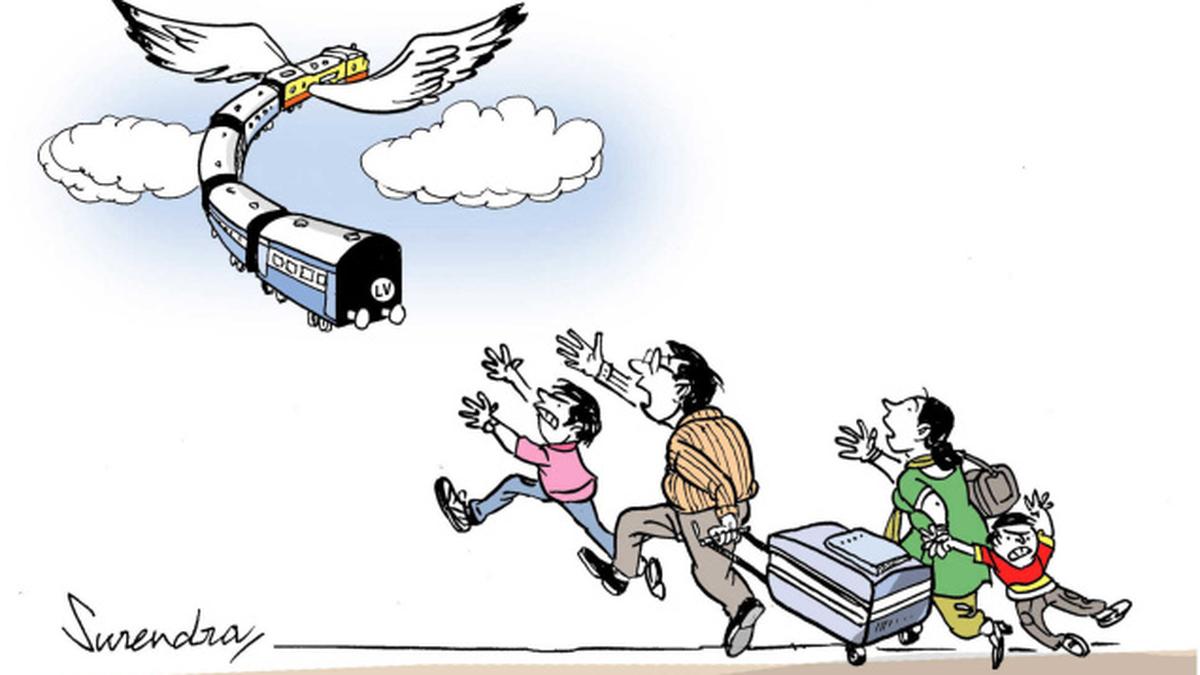While online booking has help reduce the long queues at reservation counters, it has also become a double-edged sword, especially in the context of Tatkal tickets.
The recent changes to the Tatkal ticket booking system are significant and necessary. Under the new rules, OTP authentication using Aadhaar will be mandatory for all Tatkal bookings made online. Agents will be prevented from booking Tatkal tickets during the first 30 minutes of the booking window. In addition, OTP authentication will be sent to the mobile number of the user while Tatkal tickets are being booked by agents or at counters.
Aadhaar-based OTP authentication could create further delays and uncertainty. However, the intent appears to be a course correction: to plug systemic loopholes exploited by bots and unauthorised agents, and to restore fairness in last-minute ticket booking.
The latest move must be viewed in the context of the rapid growth of online train ticketing. When the service was introduced in 2002-03, about 2 lakh tickets were booked online. In 2023-24, the number soared to 45.3 crore, accounting for nearly 83% of all tickets booked on the Indian Railways website.
Chart shows the number of tickets booked online in lakhs and the share of online tickets out of all tickets booked
The share of tickets booked through mobile devices has also sharply increased — from just 1% of online bookings in 2014–15 to over 50% by 2023-24.
While online booking has help reduce the long queues at reservation counters and requires nothing more than a mobile phone and Internet connection, it has also become a double-edged sword, especially in the context of Tatkal tickets. An internal analysis by the Indian Railways revealed that in the first five minutes of the Tatkal window, up to 50% of login attempts on the Indian Railway Catering and Tourism Corporation (IRCTC) website were made by bots. These bots can autofill details, bypass captchas, and secure tickets within seconds, even as genuine users struggle to manually enter their information.
An analysis by the Indian Railways shows just how competitive Tatkal bookings have become, too. For the AC class, around 5% of the available Tatkal tickets are booked in the first minute, 21% in the second, and another 36% over the next eight minutes. This means 62% of all AC Tatkal tickets are booked within the first 10 minutes of the booking window.
The chart shows the share (in %) of available AC Tatkal tickets booked across time periods.
For non-AC classes, the rush is even sharper — nearly 66.5% of Tatkal tickets are booked within the first 10 minutes. The chart shows the share (in %) of available non-AC Tatkal tickets booked across time periods.
In FY25, the Indian Railways detected an average of 83 lakh logins every day — a sizable share of them during Tatkal booking hours — by both individuals and bots. For instance, on March 21 and 22 last year, 1.85 lakh and 2.23 lakh tickets, respectively, were booked during the Tatkal windows of 10 a.m–11 a.m. and 11 a.m.–noon — the highest single-day Tatkal bookings recorded that year. The scale of the challenge is staggering and the latest rules are aimed at least taking bots and bulk bookings out of the equation, giving individual users a fighting chance.
The Railways have already been taking steps to keep bots and unauthorised agents at bay. Between 2019 and 2022, over 17,000 fraudulent agents were arrested for illegally procuring tickets and selling them at a premium, with the highest number of arrests reported from the Western Railways .
In addition, the Railways have identified over 140 software tools that have been used to game the system. They have also deactivated more than 2.5 crore suspected user IDs linked to suspicious booking activity.
Chart shows the Railway zone-wise split of the 17,000 fraudulent agents arrested between 2019 and 2022.
Tatkal is an important source of revenue for the Railways, with over 5% of the total revenue garnered from three sources — Flexi fare, Tatkal, and Premium Tatkal. The chart shows the amount earned by the Railways through these sources in ₹ crore.
Sources: The Press Information Bureau, the IRCTC website, IRCTC’s annual reports, Lok Sabha and Rajya Sabha questions
Also read: Air India disaster: Eleven planes that crashed after take-off in the past and the reasons behind
Published – June 17, 2025 08:00 am IST
